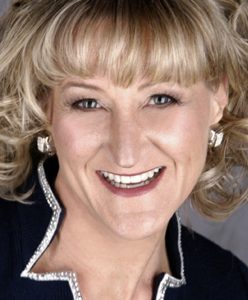Find Your Passion When Boosting Skills And Knowledge
INVESTOR’S BUSINESS DAILY
By ADELIA CELLINI LINECKER
Posted 01:00 PM ET on Investors.com
Mastering something you know how to do well is hard enough. Learning a skill that doesn’t come naturally is tougher. Either way, with hard work and practice, you can find your passion.
 • Accept your limits. Sheryl Roush, CEO of Sparkle Presentations, Inc., a firm specializing in keynote speeches and workplace communication training, started out owning a graphic design and publishing business. She had difficulty giving employees feedback and didn’t know exactly how to improve. Then someone at a networking event suggested she check out Toastmasters, a nonprofit organization developing public speaking and leadership skills. San Diego-based Roush says even though she was terrified to talk in front of strangers, she gave it a try.
• Accept your limits. Sheryl Roush, CEO of Sparkle Presentations, Inc., a firm specializing in keynote speeches and workplace communication training, started out owning a graphic design and publishing business. She had difficulty giving employees feedback and didn’t know exactly how to improve. Then someone at a networking event suggested she check out Toastmasters, a nonprofit organization developing public speaking and leadership skills. San Diego-based Roush says even though she was terrified to talk in front of strangers, she gave it a try.
• Leap. Roush, now an Accredited Speaker of Toastmasters International (one of 61 globally), hardly started out that way. “I had no idea how bad and ineffective I was,” she told IBD. “I was totally unaware of the lack of credibility I had.”
In her first speech, she uttered 19 uhs and ums in six minutes.
• Keep at it. Things didn’t pick up immediately. “My first three speeches, I still cried nervously before each one,” Roush said.
Still, she kept getting up there week after week until she slowly became more confident. “I did a lot of practice, and it was done in the safety net of club,” she said. “(Toastmasters) gives you instant feedback, with support to change as fast as you would like to.”
• Be brave. “Believe that you can do it, even if it’s not going to be perfect,” Roush said. “Do the best you can, every presentation.”
Roush’s drive paid off. Only six months after her first Toastmasters meeting, she was paid to give a college commencement speech. Now her resume shows thousands of speeches in nine countries.
“I went from having no confidence or self-esteem to finding my true calling,” she said.
 • Tap interests. For Dilip Abayasekara, an industrial scientist, public speaking was only a hobby. Then he got better.
• Tap interests. For Dilip Abayasekara, an industrial scientist, public speaking was only a hobby. Then he got better.
“One of the things I learned was how to read an audience and adapt presentations to the audience,” he said.
Harrisburg, Pa.-based Abayasekara spoke to different audiences as a requirement to become an Accredited Speaker.
That forced him to tailor his message to various groups: professionals, blue-collar workers, seniors, youth.
“In order to be effective, get the message across and connect, you have to know where your audience comes from, their expectations and how they view things,” he said. “The more you know about the audience, the more you can adapt. It’s not about the speaker; it’s about the audience.”
• Find your voice. Growing up in Sri Lanka, Abayasekara saw public speakers as those who stood on a box and proclaimed a message to the crowd. “I thought I had to be an orator and shout out my message,” he said.
He realized the image was outdated, that what people want today is someone to converse with them.
“Nowadays, a good communicator has conversations with the audience one person at a time,” he said. “I learned to speak from my heart and really connect with people.”
• Share knowledge. Abayasekara ran workshops where he worked on his own at lunchtime. “This was for sheer joy of it,” he said.
Managers saw it as beneficial, as employees would speak up more during meetings.
So Abayasekara’s boss asked him to coach scientists and engineers for their presentations. He also presented at seminars and conferences for the company and eventually served as Toastmasters International President.
